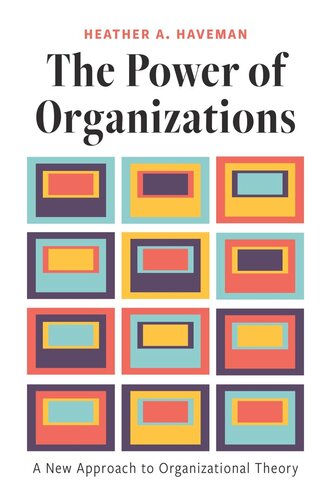

Most ebook files are in PDF format, so you can easily read them using various software such as Foxit Reader or directly on the Google Chrome browser.
Some ebook files are released by publishers in other formats such as .awz, .mobi, .epub, .fb2, etc. You may need to install specific software to read these formats on mobile/PC, such as Calibre.
Please read the tutorial at this link: https://ebookbell.com/faq
We offer FREE conversion to the popular formats you request; however, this may take some time. Therefore, right after payment, please email us, and we will try to provide the service as quickly as possible.
For some exceptional file formats or broken links (if any), please refrain from opening any disputes. Instead, email us first, and we will try to assist within a maximum of 6 hours.
EbookBell Team

5.0
30 reviewsHow organizations developed in history, how they operate, and how research on them has evolved
Organizations are all around us: government agencies, multinational corporations, social-movement organizations, religious congregations, scientific bodies, sports teams, and more. Immensely powerful, they shape all social, economic, political, and cultural life, and are critical for the planning and coordination of every activity from manufacturing cardboard boxes to synthesizing new drugs and reducing greenhouse gas emissions. To understand our world, we must understand organizations. The Power of Organizations defines the features of organizations, examines how they operate, traces their rise over the course of a millennium, and explains how research on organizations has evolved from the mid-nineteenth century to today.
Heather Haveman shows how almost all contemporary research on organizations fits into three general perspectives: demographic, relational, and cultural. She offers constructive criticism of existing research, showing how it can be remade to be both more interesting and influential. She examines how we can use existing theories to understand the changes wrought by digital technologies, and she argues that organizational scholars can and should alter the impact that organizations have on society, particularly societal and global inequality, formal politics, and environmental degradation.
The Power of Organizations demonstrates the benefits and dangers of these ubiquitous foundations of modern society.